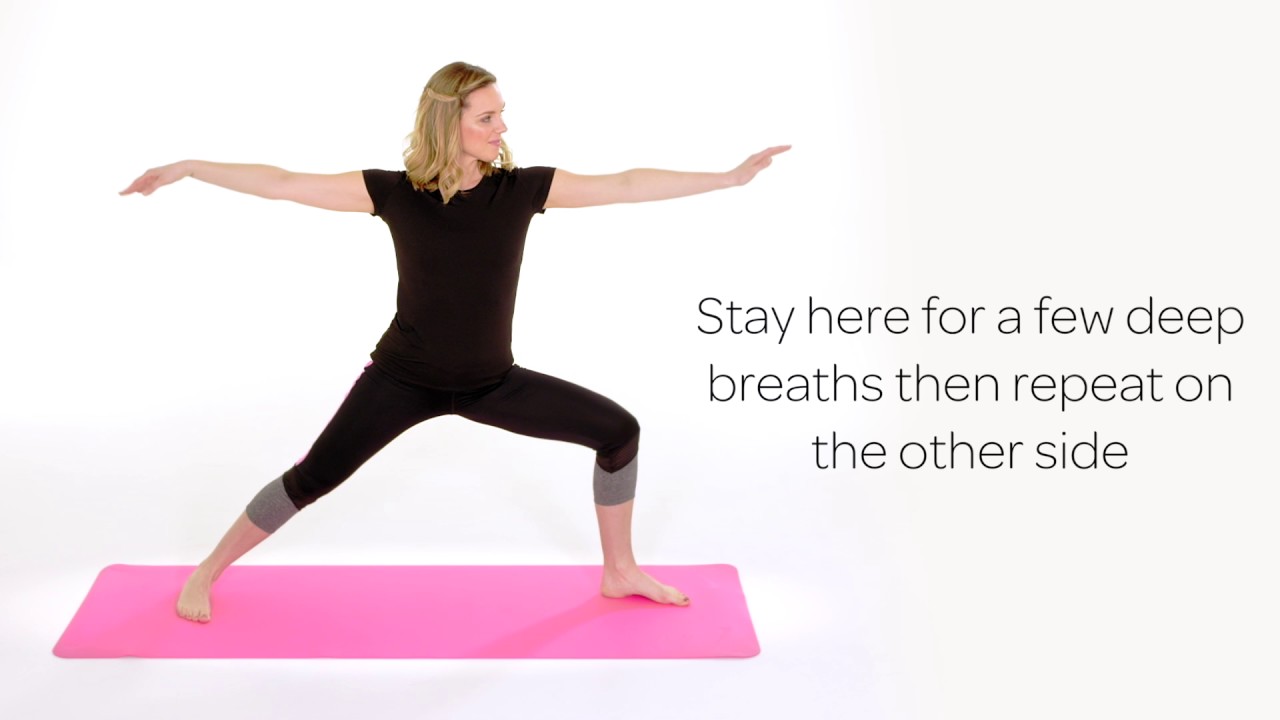
Yoga is great for women. This exercise can help you stay in shape and improve flexibility. You can read more about the benefits of this exercise by continuing reading. Women also get better skin and less sleepiness. Women can also get menopause relief as well as fewer wrinkles. Yoga can also help reduce women's chances of experiencing menopause. Below are some reasons you should get started with yoga.
Improved flexibility
Flexibility is a key component in overall health. By increasing your flexibility, you'll increase your range of motion and maintain joint health. You will be less likely to sustain injury, back pain, repetitive-use injuries, and other problems. Yoga increases your overall strength and reduces the risk of injury. Yoga has many health benefits that go beyond its physical benefits. Yoga promotes digestive health, mental health, and lymphatic well-being.
In addition to improving your posture, yoga can also improve your flexibility. Although you may not be able to do a backbend or touch your toes in your first yoga class, you will become more flexible as you learn the poses. Regular practice will allow you to reach poses previously impossible, and any aches or pains will disappear. Your flexibility will be improved even with the simplest movements.
Weight loss
Yoga has many benefits when it comes to weight loss. It not only helps to improve digestion, but also strengthens and tones muscles. Many women are unaware of the connection between yoga and weight loss. Celebrities like Jennifer Aniston. Halle Berry. David Duchovny. Christy Turlington. Yoga has been associated with a number of health benefits such as improved mood and increased body awareness. Yoga can also improve your body image, which is an important component of losing weight.

Yoga reduces stress. People who practice yoga regularly experience improved control over their brains, which leads to better food choices and easier weight loss. Yoga also aids in the body's fight against chronic low-grade, inflammation. Yoga can help you build muscle mass. Yoga is a great way for you to lose weight, improve your health and have a more fulfilling life.
Menopause relief
Yoga can help women with symptoms such as depression and insomnia. It combines stretching and strengthening of the body with meditation and breathing exercises. Yoga can also help women cope with these symptoms. It can also improve their mental, emotional and spiritual health. There are many poses that are particularly helpful for women who are going through menopause. Learn more. Below are some of the most popular poses for menopause relief.
Yoga is a great way for women to manage their most common symptoms. Yoga poses are designed to address these symptoms. They can also be used to help with emotional issues associated with the transition. Restorative yoga for women, for example, requires them to hold the poses for longer times, which may reduce the symptoms. Yoga's meditative side is believed to improve women's nervous systems and decrease their symptoms.
Stress reduction
A recent study from ICICI Lombard General Insurance has shown that 74% and 81% of women suffer from high levels. It is so widespread that many people are unable to sleep and seek new ways of dealing with stress. Yoga is an ancient technique that can help people cope with stress. It lowers blood pressure and alleviates stress-related symptoms like anxiety and depression.
Research has shown that yoga can help reduce stress levels in women. Yoga can reduce stress levels and promote synchrony in your brain. The body's response in stressful situations is controlled by the parasympathetic nerve system. In addition, yoga can improve sleep quality. Multiple studies have shown yoga can improve health and lower the risk of developing many chronic diseases. A yoga class can reduce anxiety, depression, or even osteoporosis.
Higher mental well-being

Yoga is known to have many positive effects on women. A recent study has shown that yoga can reduce blood pressure, stress levels and increase happiness. Although these benefits might not be apparent at first glance, research continues to show yoga has many other benefits. For example, yoga classes can reduce cortisol levels in women who attend for three months. Yoga can also help people deal with depression, anxiety, and fatigue because it reduces the levels of cortisol.
The International Journal of Preventive Medicine published a new study that suggests yoga may have mental health benefits for women. 52 women were examined who had practiced Hatha Yoga for one month. Harvard Health Publishing reports that yoga is good for women's mental and physical health. According to this study, yoga also helps women develop a more positive body image. These promising results led to further research that will help determine the best yoga for women.
Lower blood pressure
Yoga can help lower blood pressure in women. Yoga sessions have a lot of benefits for this purpose. The relaxation response of the nervous system activated by yoga breathing exercises is known to lower blood pressure. These breathing techniques should be learned early in life to reduce the risk of high bloodpressure. Even if you are on medication, yoga should be continued while you take your medication. You should try yoga next time you want to exercise.
A study published in May 2018 found that yoga is also a great way to reverse physical inactivity, which is a major risk factor for heart disease. Yoga is also known to encourage healthy eating habits. This helps protect your heart. Another study demonstrated a correlation between yoga-practicing women and healthier eating habits. But there's more to the benefits of yoga for heart health. While yoga may be great for your cardiovascular health, it can also help you manage emotional stress.
FAQ
Why is it important to have a healthy mind?
Work, play, learn, and love. When we talk about mental health, we're talking about our overall wellness. The physical, psychological as well as social, spiritual and environmental factors that influence us every day are all part of mental health. There are many methods to care for yourself physically, mentally, emotionally and spiritually. You don't need to do it all at once. Start somewhere.
Understanding where you are now is the first step to improving your mental health. Take this quiz and find out how much you're doing to support your mental wellbeing. If your score is low, you may want to make some lifestyle changes.
Congratulations! Let's now look at what you can do to maintain or improve your mental health.
-
Get enough sleep You can keep your brain sharp, energized and alert by getting enough sleep. The American Academy of Pediatrics (AAP) recommends that you get at least 7-8 hours of sleep each night.
-
Exercise Regularly. Exercise releases endorphins that make you feel happy. Aim for 30 minutes of exercise five times per week.
What should I do if I am experiencing mental health issues?
It is crucial to seek out help if you are struggling with any mental health issues. There are chances that you have suffered trauma or abuse in your past. It is possible that you have had to deal with trauma in your past.
A mental illness such as an eating disorder or addiction could also be present. These disorders can have a devastating effect on your life.
It is best to not try to solve them all by yourself. You should speak to someone who understands what you're going through. A professional therapist can provide the support you need to overcome these challenges.
How can I improve my mental wellbeing?
Everyone needs mental health, especially when we feel stressed at work, school, home, or family. Exercise regularly, eat healthy meals, get enough sleep, and spend time with loved one are all ways to improve mental health. Exercise releases endorphins that make us feel happier. Good nutrition is essential for a healthy body. Good sleep gives us energy all day. And finally, spending quality time with loved ones improves our relationships and reduces stress.
How does mental health affect my relationships?
Your mental health can have a profound impact on your daily life. It can impact your ability to function well at home, school and work. Mental health issues can also make it challenging to form meaningful relationships.
You may feel isolated when you have a mental condition. You might even avoid social situations if you feel like no-one understands.
It's important to remember, however, that people want to be with you. They just need the ability to approach you.
Talking to others about your feelings can help you connect with them. Ask for their guidance and tell them how you feel.
Why is mental well-being important for students
Mental health is vital for students because they need to be able to focus on school and do well academically. If you don’t feel happy, you won’t do well in school. Students who suffer from depression often miss class, which leads to poor grades. This could lead to students dropping out of high schools and eventually going to college.
Talk to your family and teachers if depression is a problem. These people will be able help you receive the care that you require.
It is important that you remember that not everyone suffering from depression needs medication. Talk therapy can be very effective for many people. Counselors are a good option if you want to get help.
What causes adolescents to have mental health problems?
Adolescence can be a time in our lives when we are beginning to define ourselves. We start to define who we are as individuals and how we fit into society.
We also make new friends and develop romantic relationships during this time. These experiences can cause stress.
While stress is normal, you should seek out help if your stress levels are higher than usual.
You may believe that you can manage everything yourself, but sometimes it's better to have someone to talk with.
During times of stress, your family members and friends can be there for you. They can also help you learn ways to deal with stress.
You could try meditation or exercise. Both activities can help reduce stress.
Additionally, you might consider joining a club such as a team sports or church. You'll meet new people, make new friends.
Statistics
- In any given year, an estimated 18.1% (43.6 million) of U.S. adults ages 18 years or older suffered from any mental illness, and 4.2% (9.8 million) (healthypeople.gov)
- According to the National Alliance of Mental Illness (NAMI), one in five Americans experiences mental health issues which translates to more than 40 million adults a year. (doctorondemand.com)
- More than 40 million adults in the United States have an anxiety disorder, but less than 37% of people seek mental health treatment for their symptoms. (talkspace.com)
- Appropriate nutrition and exercise are likely among the most efficacious and cost-effective positive mental health interventions. (ncbi.nlm.nih.gov)
- More than 50% will be diagnosed with a mental illness or disorder at some point in their lifetime.3 (cdc.gov)
External Links
How To
How to improve your memory
Everyone would like to have better memory. Memory loss happens to everyone at some time. More than half of Americans aged 65 and older suffer from dementia.
No matter if you are dealing with Alzheimer's disease, dementia or any other form of cognitive decline, there are many options to improve your memory. Here are three easy steps that you can start today:
-
Get more fruits and vegetables. Vegetables contain phytochemicals, vitamins, nutrients, fiber, antioxidants, and minerals that enhance brain function. They are also rich in essential nutrients that help prevent neurological diseases.
-
Get enough sleep. Low sleep quality has been linked both to memory loss, poor concentration, and memory loss. Get seven to eight hours of sleep each night.
-
Take a walk. Walking stimulates blood circulation to the brain, which improves memory. Walking is good for your health and helps you look slimmer.